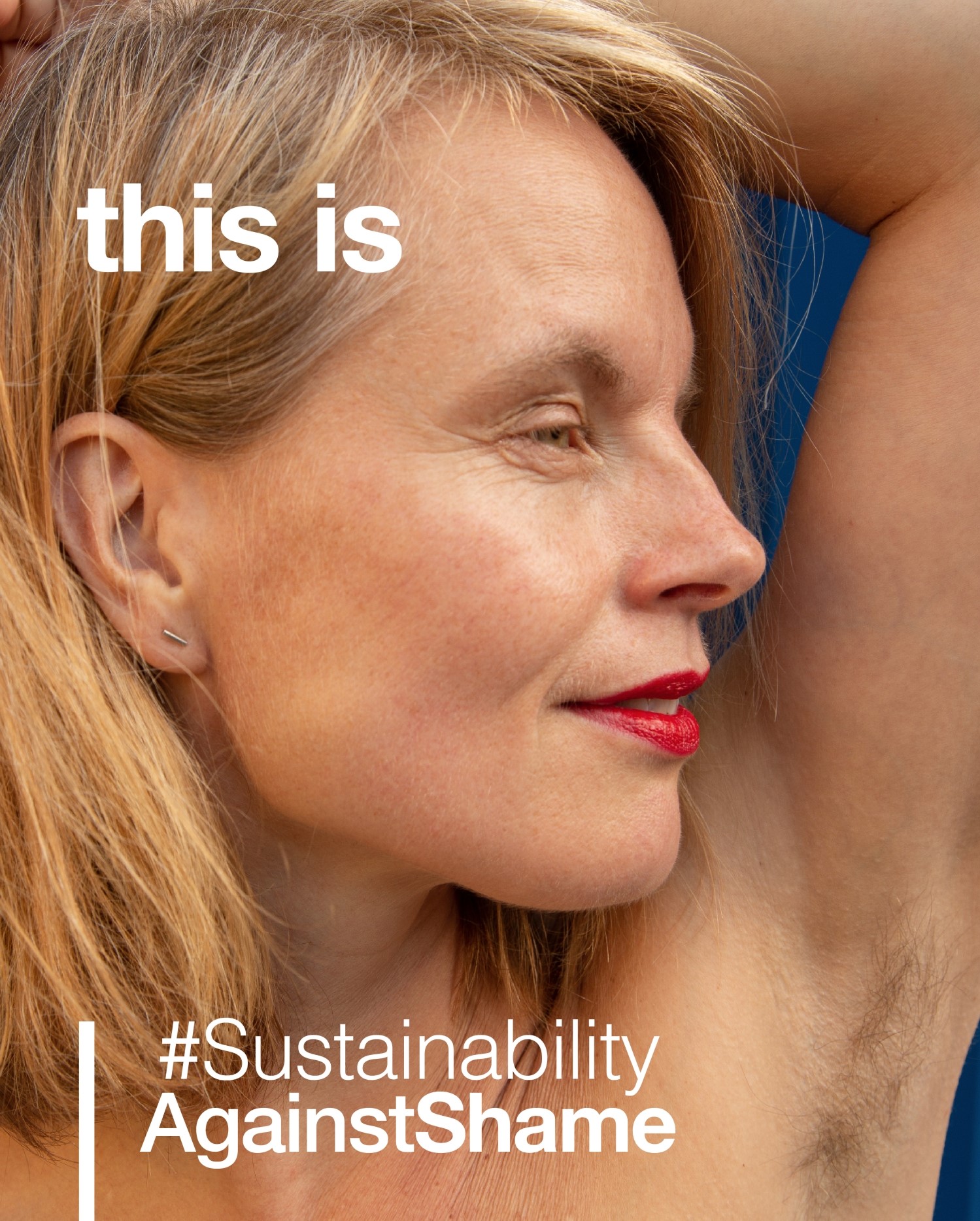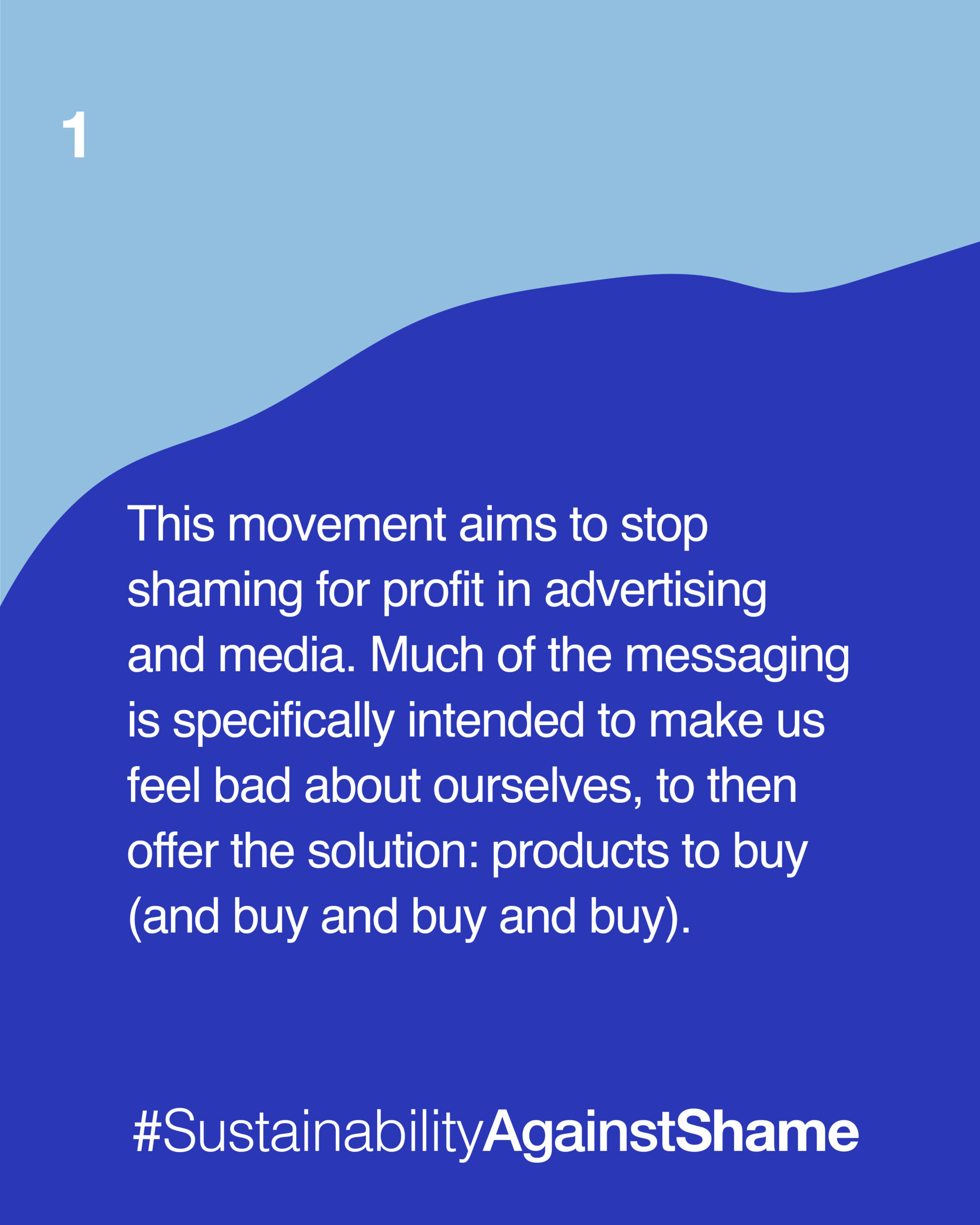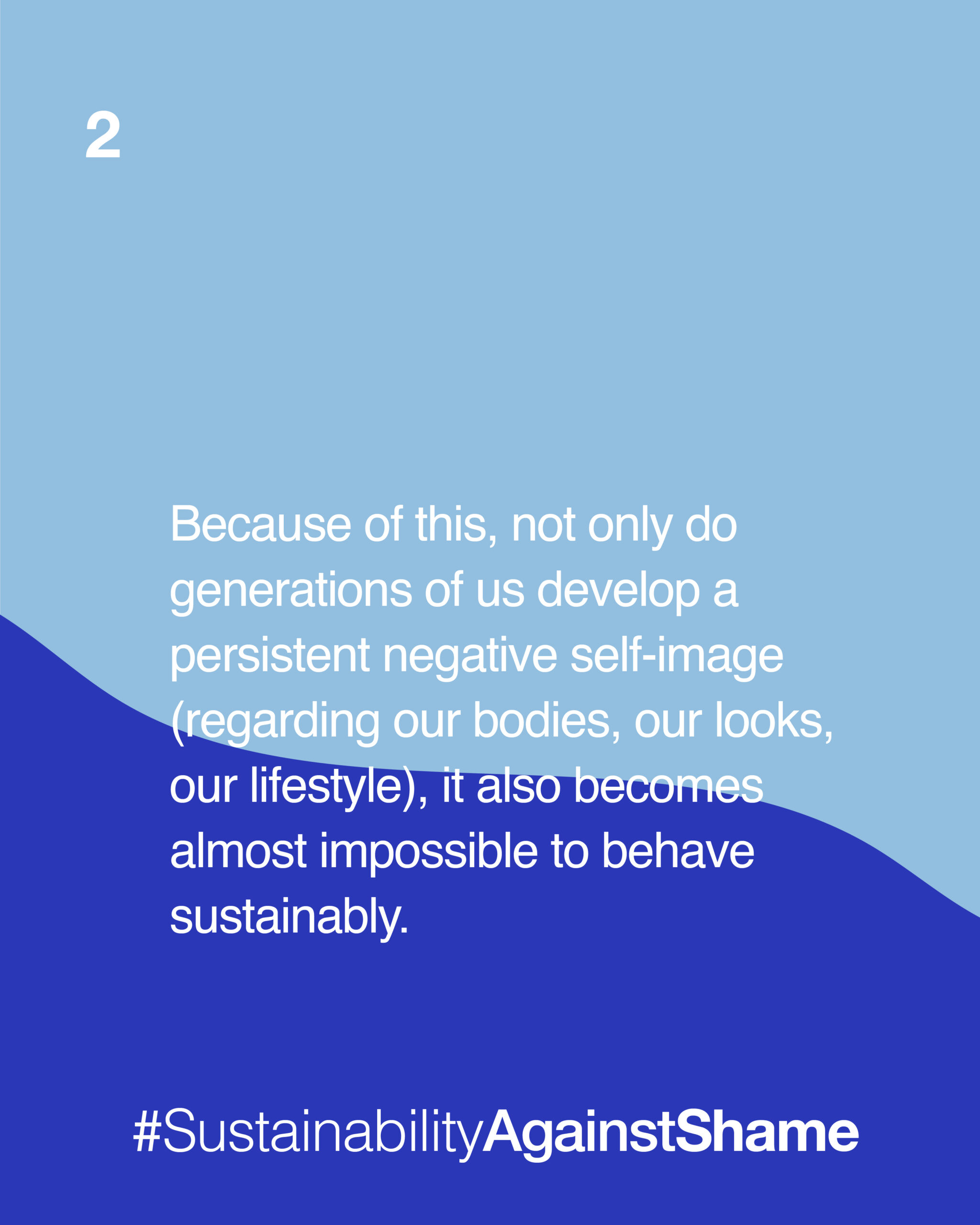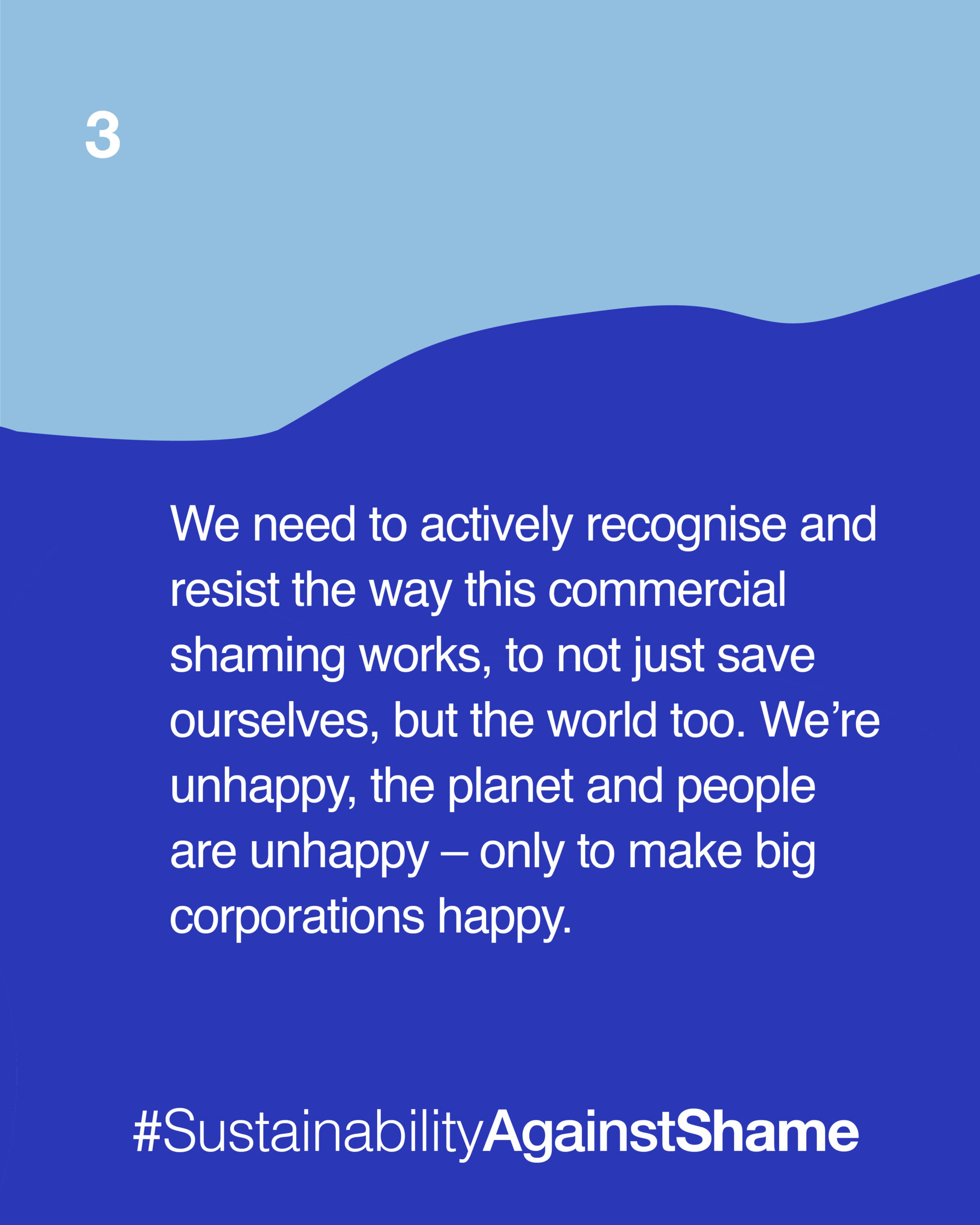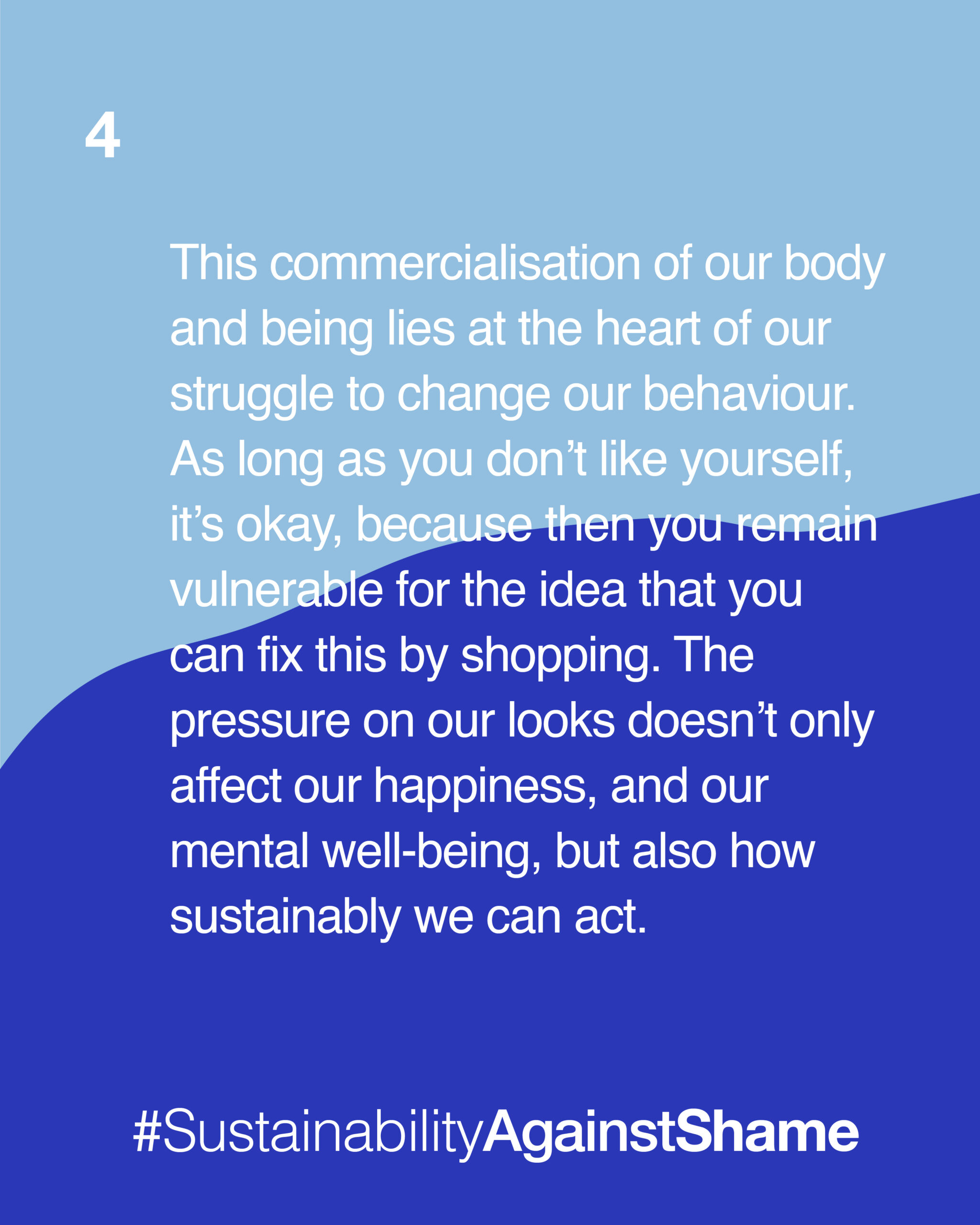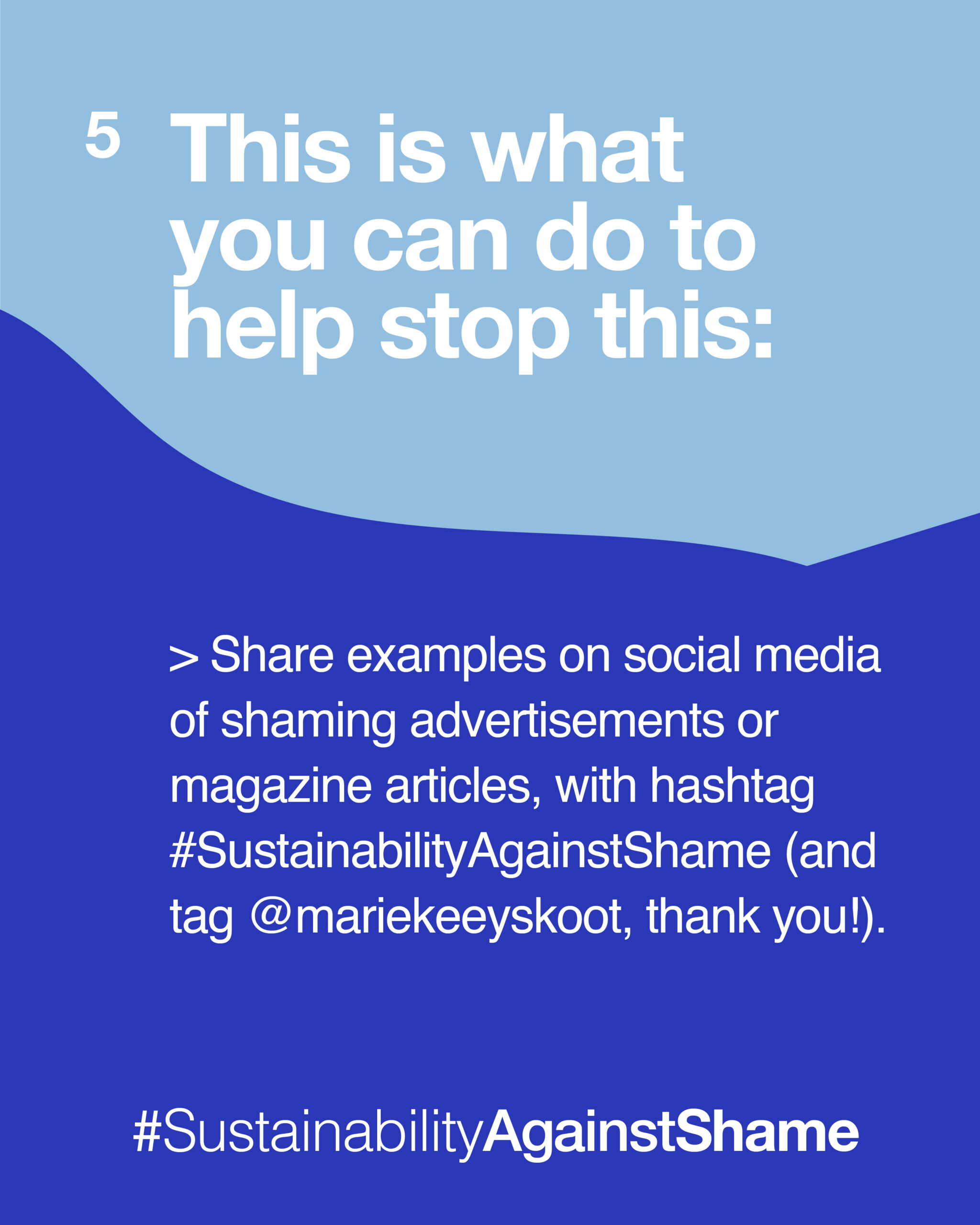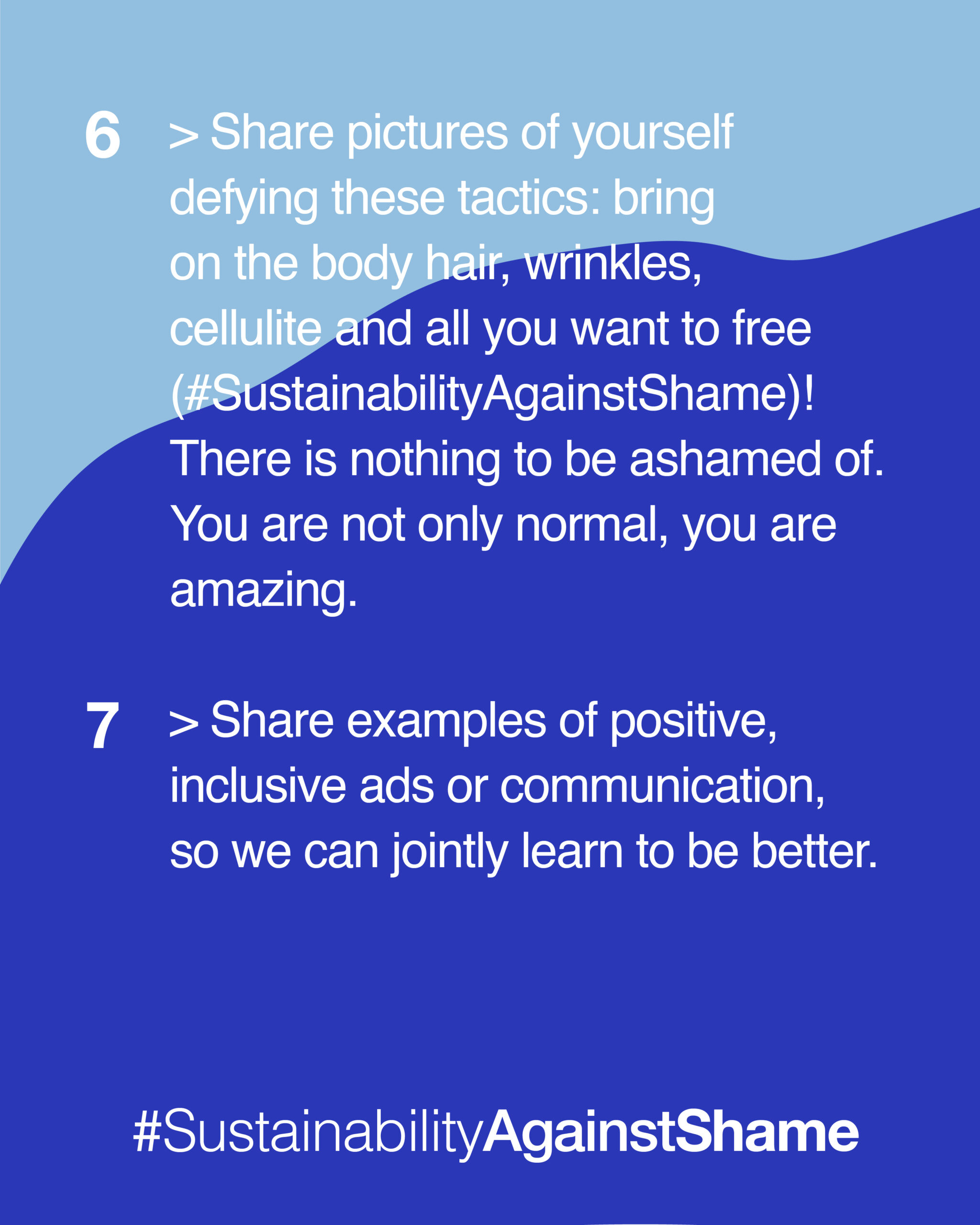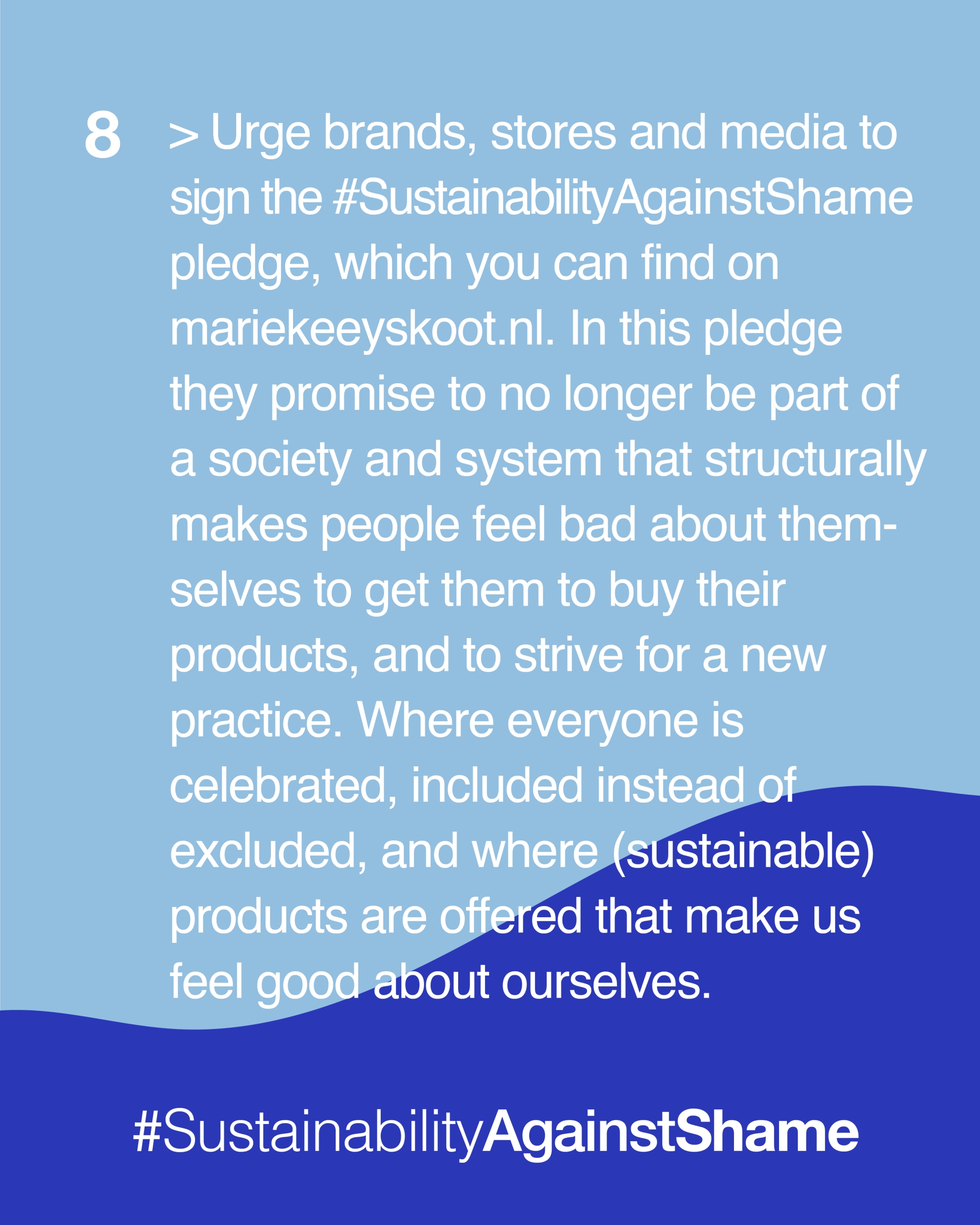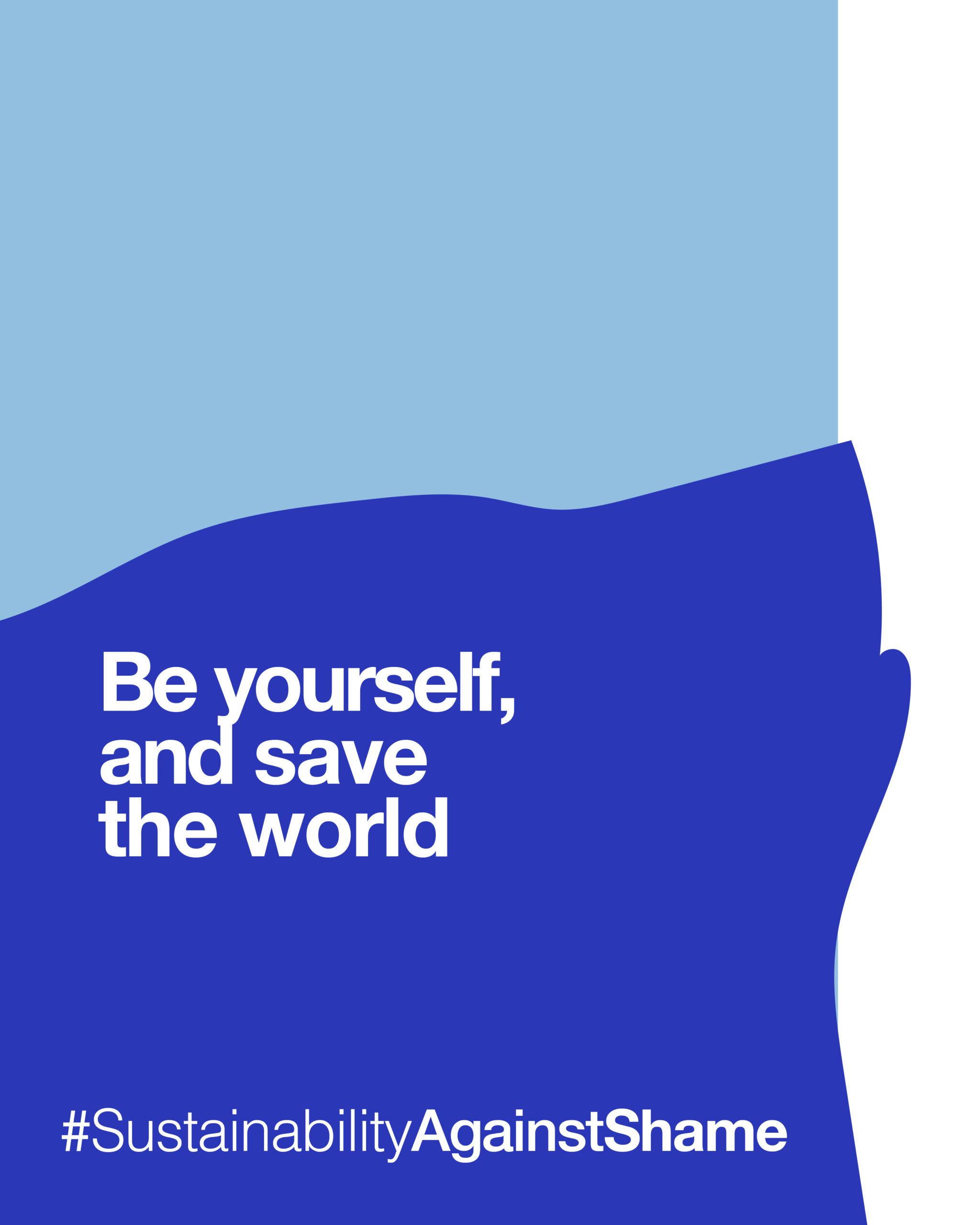The movement that stops shaming for profit and saves the world
Sustainability and shame are linked
normalise
our
bodies
and
beings
This is how shaming for profit works
We are all perfect, just the way we are. There is nothing to be embarrassed about. We are all human, we all have a shape, a colour, and we all have flaws. Nothing we buy, can increase our self-worth and self-love. That is entirely ours. Generally, the fashion, accessories, beauty, gadgets, sports and diet industries beg to differ, and many media do too.
We are not good enough. You are not beautiful enough. Your skin isn’t smooth or the right shade. You are not skinny or fit enough, don’t wear the right clothes and are not on trend. You don’t look like the model, which is almost impossible anyway, as (even though things are changing in this area) they’re almost without exception very young, slim, tall and white. The ideal we have to live up to in the lifestyle business is ridiculously limited. Much of the messaging is specifically intended to make us feel bad about ourselves, to then offer the solution: their products. So we’re talked into having a problem, which makes that whole generations of us develop a negative self-image. And we’re tricked into incessantly buying more and more, which makes it nearly impossible to become truly sustainable. Businesses are getting rich thanks to our low self-esteem, doubts and insecurities, and the world suffers.
This commercialisation of our body and being lies at the heart of our struggle to change our behaviour. As long as you don’t like yourself, it’s okay, because then you remain vulnerable for the idea that you can fix this by shopping. The pressure on our looks doesn’t only affect our happiness, and our mental well-being, but also how sustainably we can act.
What this movement is about
OUR BODIES: size, shape, colour, wrinkles/cellulite, sweat, body hair, hair or skin colour, acne/spots, ability, menstruation, etc.
OUR LOOKS: not on-trend, like others or celebs, right for your body, gender-conforming, too sexy/modest, etc.
OUR LIFESTYLE: what we eat, who we fall in love with, how we identify ourselves, etc.
What you can do
This movement is aimed at brands, stores and media. You can contribute by (please tag me so I can share! @mariekeeyskoot on Instagram):
- Sharing examples on social media of shaming advertisements or articles, with hashtag #SustainabilityAgainstShame.
- Sharing pictures of yourself defying these tactics: bring on the gorgeous body hair, wrinkles, cellulite and all you want to free!
- Urging brands, shops and media to sign the #SustainabilityAgainstShame pledge, which you can find below. Scroll down to discover who have already committed.
- Sharing examples of positive, inclusive ads or communication, so we can jointly learn to be better.
- Being very conscious of this way of communicating, resisting the message and spreading the word. And by all means does this go way beyond the internet. It can be such an eye-opening moment to hear someone talk about how this works. Every time we have these conversations, we grow stronger together. Imagine what would happen if we all decided to no longer be convinced to dislike (parts of) ourselves…
This is the pledge
- Not use shame as a means to sell our product(s) or approach audiences; this includes but is not limited to body (size, shape, colour, wrinkles/cellulite, sweat, body hair, hair colour, skin condition, ability, etc.), looks (outdated, not on-trend, not cool, not like everyone else or the celebs, not right for your body, not gender-conforming, too sexy/modest, too colourful/weird, etc.) and lifestyle (food, work-out regime, choice of entertainment, social media, religion, sexual orientation, gender identity, period products, sustainable alternatives etc.).
- Be inclusive in our visual messaging, and portray persons of various sizes, skin colours/conditions, age, ability, background, orientations, etc. We also strive to be inclusive in our text-based messaging, by being aware of how our possible privilege(s) and cultural position shape our (unconscious) bias, what we do and don’t write about and our choice of words.
- Not use design programmes (such as Photoshop) to enhance or change the look of the people in our messaging towards perceived ‘perfection’ – and if we do, we will be transparent about it in that same message.
- Not just be inclusive in how we portray people, but extend that in a credible way to our entire company, and make sure to the best of our ability that persons of various backgrounds, ages, gender identities, sexual orientations and abilities are represented on all levels of decision-making.
- No longer be part of a society and system that aims to structurally make people feel bad about themselves in order to get them to buy our products. We will actively strive for a new practice, where everyone is celebrated, included instead of excluded, and where (sustainable) products are offered that make people feel good about themselves, and they can buy when they actually need them.
Signed by
BRANDS AND STORES
Lush NL
Lovia
LENA the fashion library
Fraenck
Goat Organic Apparel
Shop Like You Give a Damn
Lora Gene
2 Degrees East
MEDIA AND ORGANISATIONS
DAMN, HONEY
De Bovengrondse
ActionAid NL
Global Fashion Exchange
Rio Ethical Fashion
The Progressivists
The TittyMag
Menstruatiemeisjes
Some amazing people and institutions have become supporter of #SustainabilityAgainstShame. This is our gang:
Thekla Reuten
Jo Lorenz
Patrick Duffy
Bureau Clara Wichmann
Lisette Kreischer
Nina Olsson – Nourish Atelier
Laura de Jong
Want to know more?
- Watch my TEDxtalk ‘How the pressure to look good, prevents us from doing good’ (click on the image).
- Listen to Dan Karaty and me talking about it in his podcast ‘If I’m Being Honest’ (in English).
- Listen to us discussing these themes in the DAMN, HONEY podcast (in Dutch).
- Read this article by me on the Eco Age website: Why The Commercialisation Of Our Body Image Is Putting The Planet At Risk.
- Check out these fab Instagram-accounts, which regularly post about similar issues: Jameela Jamil, iWeigh, Georgina Cox, Matt Haig, Danae Mercer, Feminist.
Examples of shaming
Products that attack ‘problem areas’, shaming natural skin processes: those that minimise pores, eliminate cellulite or combat laugh lines around the eyes.
Ads for shape wear, fitness items, food regimes or pills and shakes that ridicule your body size (or tell you to lose corona-kilos).
Articles reporting about the latest trends: to cover your entire body in make-up to highlight good parts and shade away your problem areas.
Limiting ways of portraying people in all sorts of communication: gender identity, age, colour and background, sexual orientation, ability and more.
Commercials for hair removal products that don’t show any hair, or for period products that contain blue liquid instead of blood.
And so on.
Share these as much as you want! Thank you x
